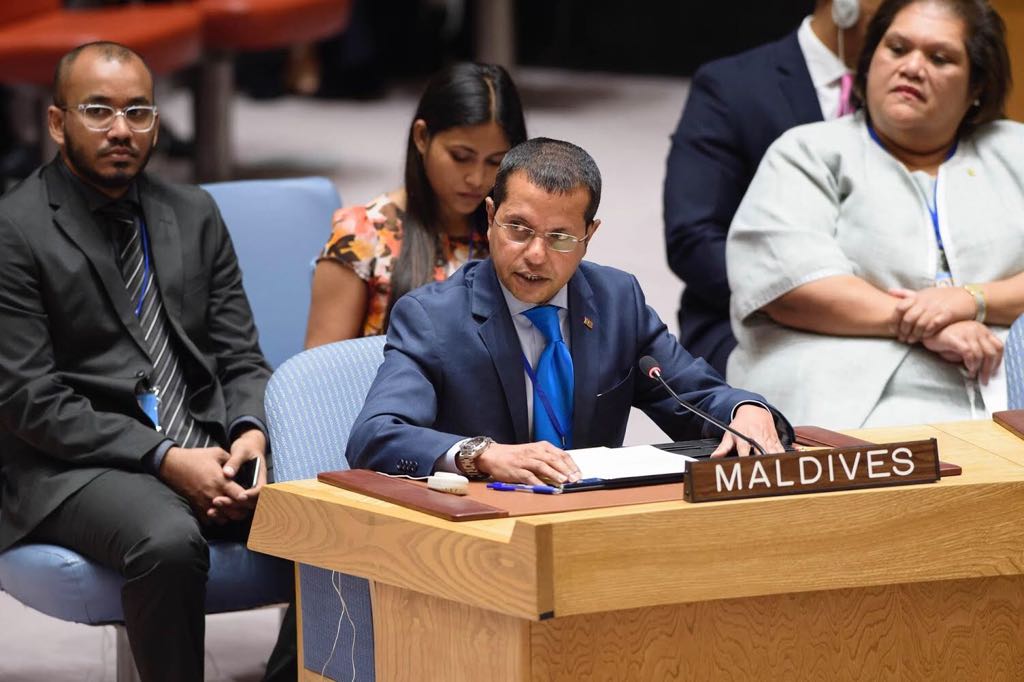
New York, 11 July 2018: The Permanent Representative to the UN, Ambassador Dr Ali Naseer Mohamed delivered a statement today at the Security Council’s Debate on “Maintenance of International Peace and Security: Understanding and Addressing Climate Related Security Risks”. Speaking in his capacity as the Chair of the Alliance of Small Island States (AOSIS), Ambassador Mohamed noted that the right question to ask in the debate on climate related security risks is not whether “Should the Security Council discuss climate change?”. The right question, instead must be “Should the Council take appropriate measures, when man-made actions result in the destruction of islands, cities, and indeed nations, or the entire livelihoods in some countries?” That is because, the AOSIS countries are on the front line of impact from climate change, and “the very existence of some of these countries is threatened by climate change and the security risks arising from its impacts”.
At the same time, Ambassador Mohamed reiterated the firm belief of the AOSIS that “UNFCCC should remain the primary UN agency in responding to the phenomena of climate change. The UN’s existing institutional architecture, on the issue of climate change, whether it is about mitigation, adaptation, transfer of technology, and advancing the basic principles, such as the common but differentiated responsibilities within respective capabilities in responding to climate change, should be promoted, within the framework, set out by the General Assembly and the Economic and Social Council. Yet, where there are clear threats to the security and survival of any country, whether such threats originate from the climate risks, or from conventional military aggression, the Security Council has to take appropriate actions.
“The Paris Agreement was indeed a historic milestone in the global effort to address climate change. However, it is well established that we will not be able to meet our stated goals of 1.5 and 2 degrees Celsius. Instead, we will be taken into a truly uncharted territory. But climate change is no longer just about the future. The danger is already here, in the present, with the potential to become a destabilizing force, nationally and regionally.
“There has been a persistent funding gap for adaptation, which trails far behind climate finance provided for mitigation. This must be remedied, with a larger share of public and grant-based sources of finance, reserved for adaptation. We also need a strong international mechanism, to address loss and damage for when climate change impacts exceed the capacity of nations to adapt. We therefore urge all Member States, especially the developed country partners, to fully implement their commitments and obligations under the Paris Agreement, and other international conventions and agreements relating to climate change. We also emphasize, the critical role of the international community, in the provision of adequate, predictable, and additional financial resources, transfer of technology, and capacity building, to developing countries, in particular, the SIDS.
“It is important that the UN system has, a full understanding of how climate change threatens international peace and security, and how the phenomena drive conflicts. For the Security Council, to ignore the climate induced risks to international peace and security will be a mistake of historical proportion. From fires to famine to flooding, every continent is feeling the fury of climate change, and it will not wait until we clarify which UN agency is most appropriately positioned to respond.”
ENDS



